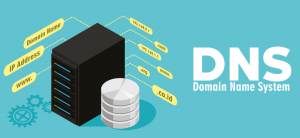What is DNS protection?
Before we talk about DNS security, you need to understand what DNS is and then we will look at how Nostra can help. The domain name system (DNS) works like a phone book for the internet. When a user enters text into a browser, DNS servers take that input and translates it into the unique internet protocol (IP) addresses. This then let’s the browser open the desired site. But DNS protocols were never designed with security in mind. They are highly vulnerable to cyberattacks.
By redirecting users’ web traffic through a cloud-based, DNS security solution, businesses and MSPs can finely tune and enforce web access policies. This ensures regulatory compliance. It also stops 88% of threats at the network’s edge—before they ever hit the network or endpoints (see our network solutions page for more information).
Why businesses need DNS protection
Uncontrolled internet access is a high-risk activity for any business, regardless of size. Faced with today’s sophisticated attacks, endpoint security alone is no longer enough to stay safe from modern cybercrime. In fact, a recent report from EfficientIP found that 77% of businesses around the world suffered at least one DNS cyberattack in 2018. What’s even more worrying: on average, businesses got hit with as many as seven attacks throughout the year.
Read our post on how Microsoft 365 can help you simplify GDPR as well.
How can Nostra help?
Now that you know what DNS is, let’s look at how Nostra can help. A DNS agent is silently installed in the background on user devices. For servers, we create a DNS forwarding rule on the Domain Controller. The result of this is that there is no interference with internal communications. Internet requests for all devices are compared against the Webroot database and excluded domains/categories are blocked based on the clients policy. Client devices can be split up into different groups which allow us to define what each user/department can access. For example, perhaps only HR should be looking at recruitment sites and only marketing requires social media access. Individual sites from within an excluded category can also be whitelisted on request. DNS protection forms one part of our full suite of Security Services.
Source: Webroot


